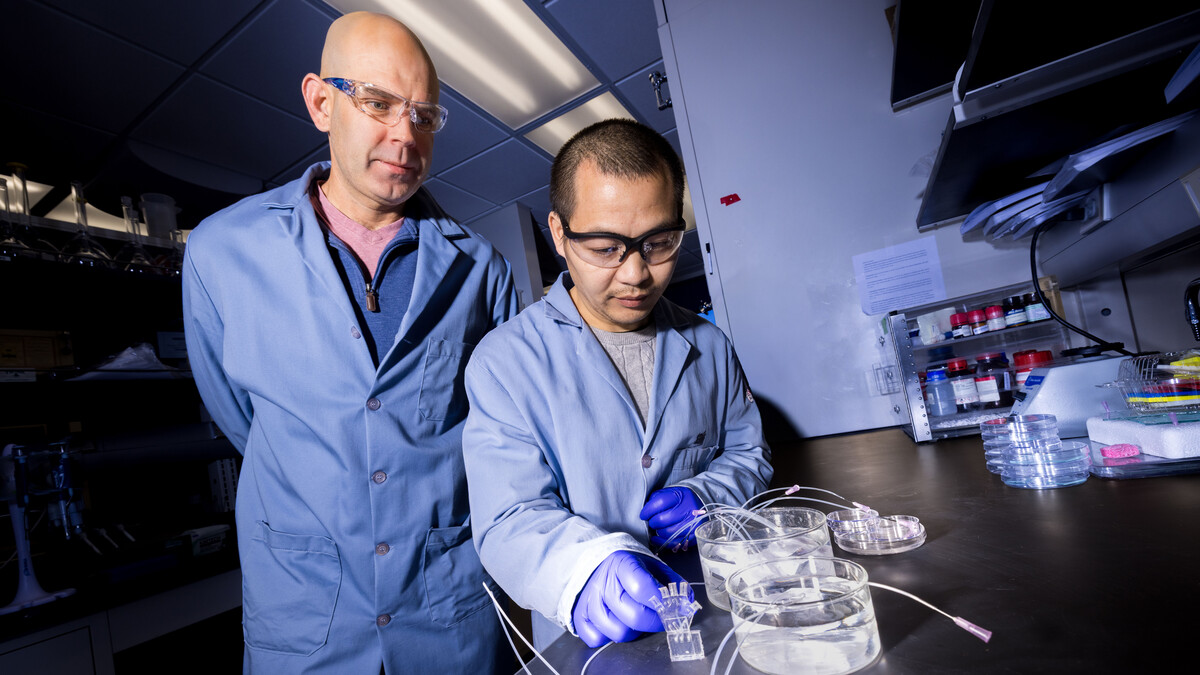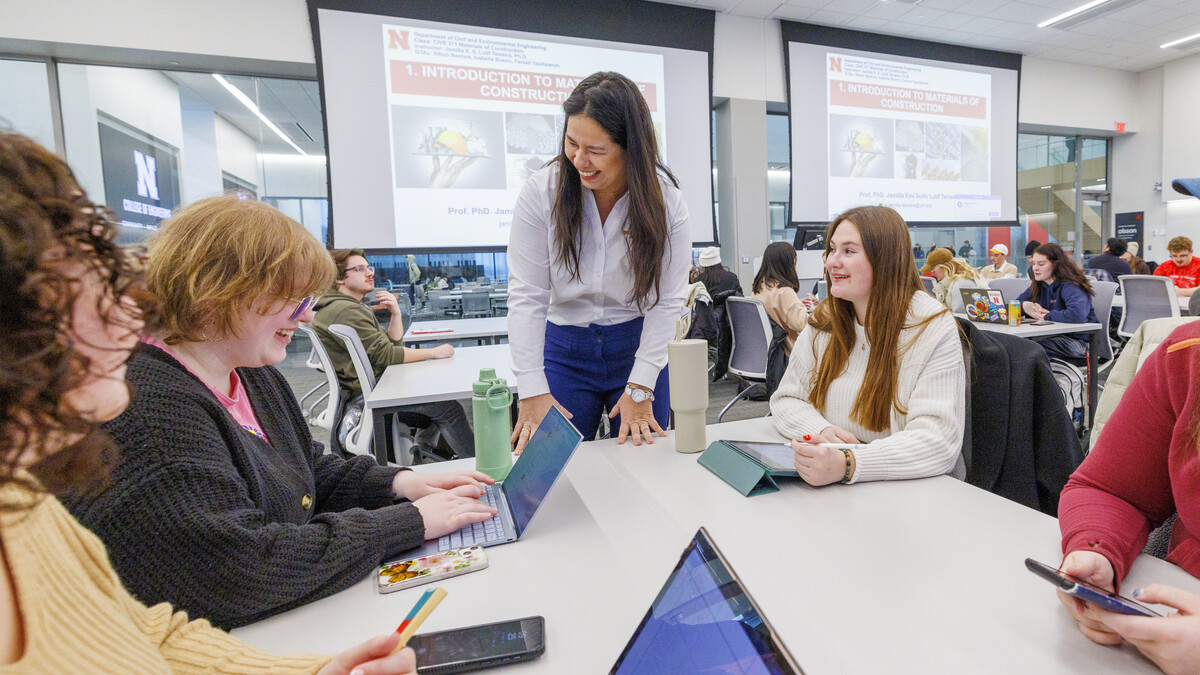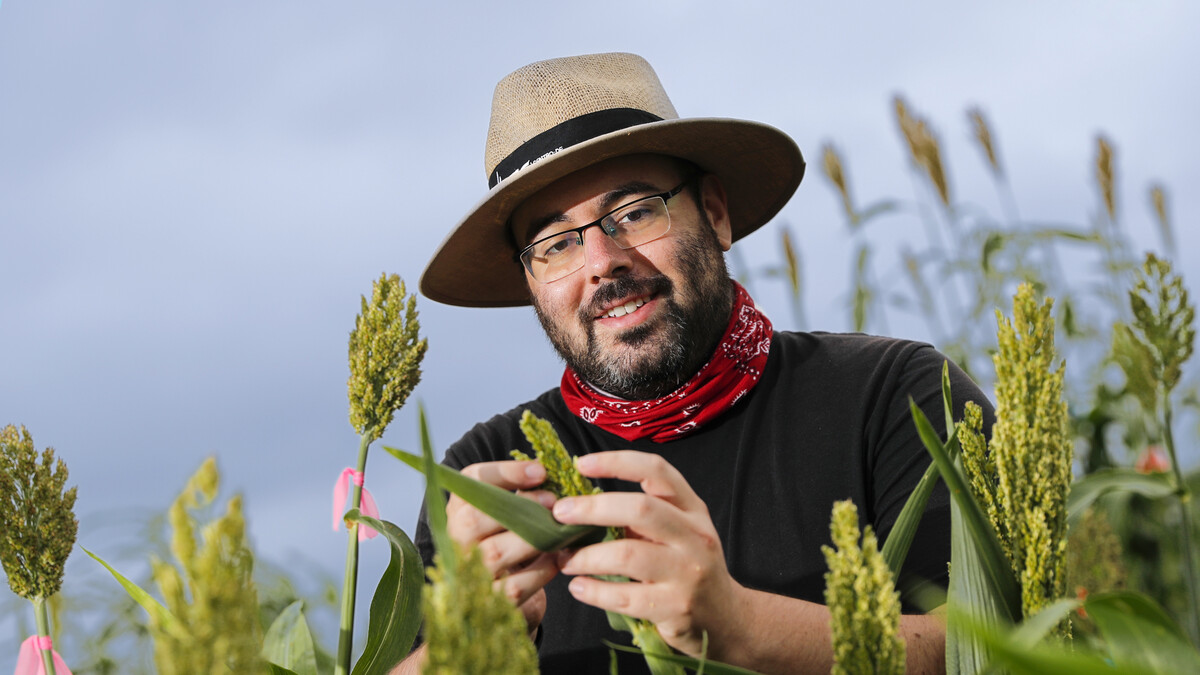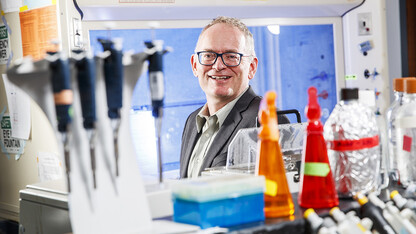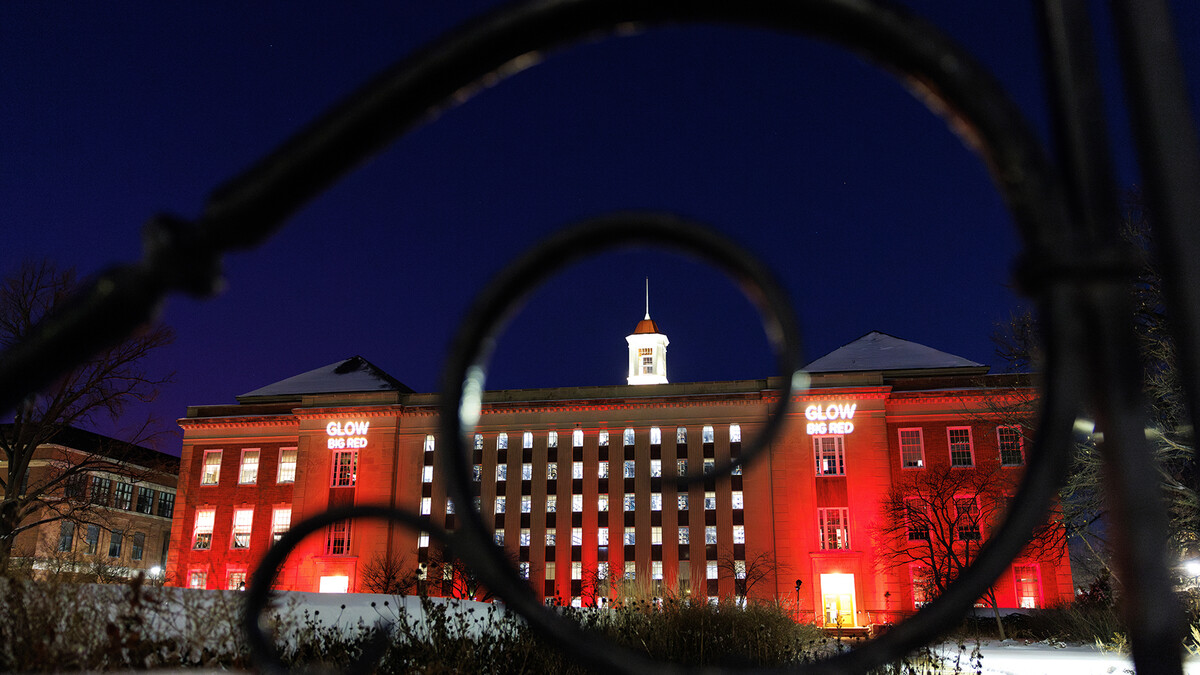
“The second win felt different than the first,” said Zach Wallenburg, a computer science major in the Raikes School.
The junior from Lenexa, Kansas, has helped bring home two consecutive debate national championships, including the first in history at the University of Nebraska–Lincoln.
“The first time we won was the first-ever debate championship UNL, so we were really the underdogs with something to prove,” Wallenburg said. “The second year, we came back with a chip on our shoulder — we wanted to prove that the last year wasn’t a fluke.”
Though debate is an individual competition, tournaments count the total scores of each school to determine the winning teams. Preparing as a team, explained Wallenburg, is the most essential part of the Husker debaters’ success.
“All of the preparation that our team does together is probably 90% of the work,” he said. “We receive the debate topics months in advance, and from there we have to be prepared to debate in affirmation or negation of the debate topic.”
Topics are usually timely — nuclear arms control being this year’s topic — and give the debate team plenty of real-world knowledge to absorb, analyze and consider when building arguments for competition.
Unsurprisingly, it’s a lot of work.
“It takes a lot of time to research and identify evidence that defends the point of view we’re promoting,” Wallenburg said. “Being a university team, we still have to think about all the traveling and keeping up with our grades — stuff you don’t see when you look at results.”
A student in the Jeffrey S. Raikes School of Computer Science and Management, Wallenburg credited Raikes School faculty, debate associate director Justin Kirk and his debate teammates for helping make the balance work.
“It’s demanding, but I have such a good network of friends and teachers that I can rely on — we have a really good atmosphere that prioritizes what we need,” he said.
As for the impacts of being back-to-back champions, Wallenburg said he’s proud to help UNL’s debate reputation grow and attract new talent.
“Historically, people learning debate in Nebraska high schools have tried to go elsewhere. Now, we have more first-years than we’ve ever had” he said. “It’s exciting to watch this program grow.”



